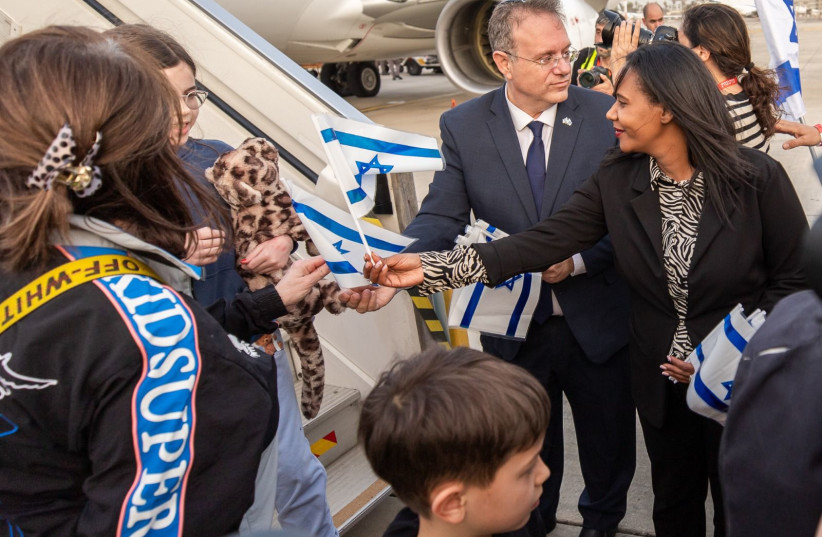Defense Minister Benny Gantz held a situational meeting on Friday to discuss the Defense Ministry's assistance with the Aliyah and Integration Ministry's work of bringing new olim (immigrants) to the country and with the Interior Ministry's intake of refugees from Ukraine.
Gantz was joined by a number of top members of the defense system including the deputy chief of staff, commander of the Home Front and the head of the National Emergency Authority.
"The operational assumption is that we are facing a significant national challenge together with the security challenges that we already face and continue to be relevant, as well as the ongoing COVID-19 challenge," he said at the beginning of the meeting.
"The defense system and the IDF will give any operational assistance that will be needed - and any solution that we can help with – whether regarding order of battle or procurement and logistics, especially within the first weeks – until the system stabilizes. All this in cooperation with and under the directive of the Integration and Aliyah Cabinet headed by Pnina Tamano-Shata, and the rules set by the Integration and Interior Ministries."
Gantz went on to clarify that "while the IDF and the entire system will assist with tasks, no IDF soldiers will take part in decision-making."

The meeting concluded that the head of the National Emergency Authority will concentrate all the system's activities with the governmental offices, the IDF will supply approximately 50 Ukrainian and Russian soldiers to help assist people arriving at Ben-Gurion Airport and a further 40 to assist the Jewish Agency with its hotlines.
Additionally, the IDF will prepare to teach the new olim Hebrew, and the defense system will look into recruiting them to work in industry.
Gantz underlined that in the first stages of the operation, his people are expected to work closely with the governmental offices and supply immediate responses, while in future stages, the system may be transferred to relevant qualified people.
